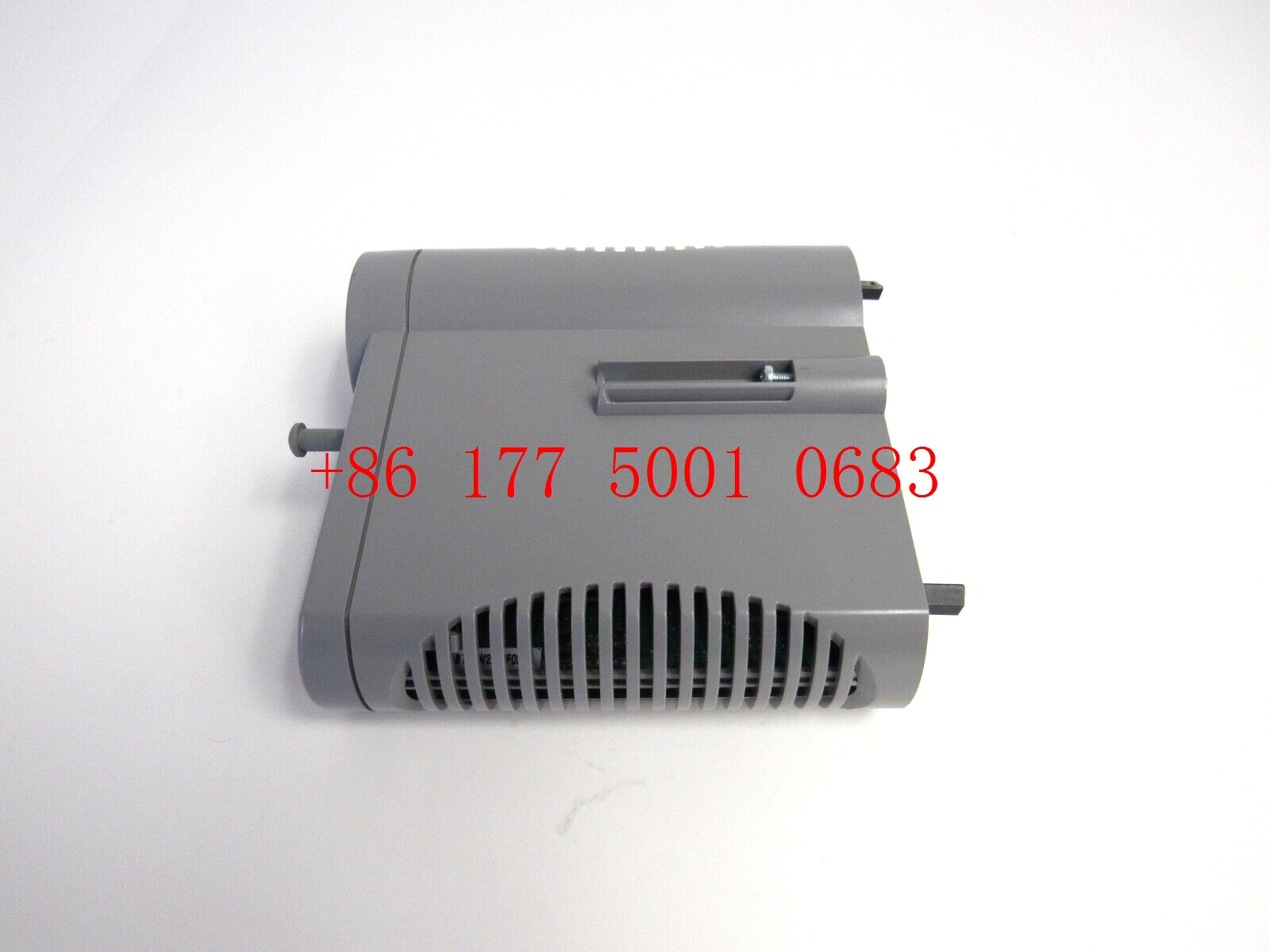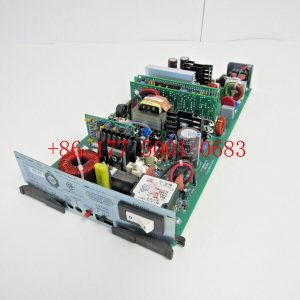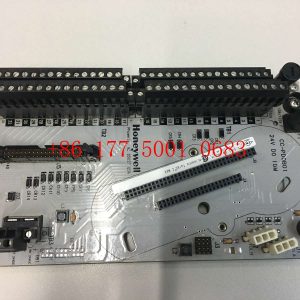Description
hardware flow control. It is an ideal choice in the field of industrial automation.
Why is the industrial Internet inseparable from industrial control?
ABB Global CEO Ulrich Spiesshofer recently accepted an exclusive interview with a reporter from Caijing in New York. He believes that the global manufacturing industry is
undergoing drastic changes. The era of labor arbitrage is over. Labor costs are no longer the focus of competition. The future of manufacturing lies in In factories that are smaller,
closer to consumers, and more agile. Artificial intelligence ( AI ) is the most important technology shaping the future of manufacturing. Currently, AI technology is mainly used in the
consumer field, but its large-scale application in the industrial field and among enterprises is more critical.
Digital transformation has been a keyword for global manufacturing giants in the past two years, and the industrial Internet is the implementation form of digital transformation.
General Electric (GE), Siemens and ABB are all leaders in this regard . Spiesshofer believes that GE”s industrial Internet only collects data and analyzes but cannot control it.
As the world”s two largest industrial automation suppliers, ABB and Siemens have the ability to control equipment, which is a significant difference from GE.
ABB is headquartered in Zurich, Switzerland. Its history can be traced back to the 1880s. It started from the original electrical manufacturing business and has developed into an international manufacturing
giant including electrical products, robotics and motion control, industrial automation and power grid. In 2017, ABB”s revenue was US$34.3 billion, ranking 341st among the
Fortune 500 companies. Spiesshofer has served as CEO for nearly five years since taking office in September 2013.
Below are the details of the interview.
The era of labor arbitrage is over
Caijing: Is 2018 a good year for the manufacturing industry?
Spiesshofer: From a global perspective, GDP is growing and consumption is also growing. Overall positive.
Caijing: What crucial changes are taking place in the manufacturing industry?
Spiesshofer: The jobs of the future will be different from the jobs of the past. In the Middle Ages, craftsmen moved between villages, taking their tools with them to work where
there was demand; later we invented factories, integrated supply and demand, and invented logistics; later people realized that there was labor arbitrage (Labor Arbitrage, Refers to
the existence of moving industries that have lost technological advantages and technical barriers to areas with low labor prices to increase profits by reducing labor costs), so we place
factories in emerging countries to benefit from labor arbitrage.
Now, with the development of modern automation and robotics, we can break this picture and bring value addition closer to demand. I think the future of manufacturing is
in factories that are smaller, closer to consumers, and more agile. I believe that the global logistics chain will also be reduced in the future because we will produce products closer to consumers.
The era of labor arbitrage shaping the global manufacturing landscape will be over because we can offset this arbitrage.
Recently we opened a new factory in Germany. Due to the adoption of intelligent automation technology, its unit cost is exactly the same as that of the best factories in
China. So I think the local market will be repositioned in the future, and the positioning of competitiveness will also change from just considering costs to focusing more on technology and value.
Caijing: Many people are complaining that automation has caused people to lose their jobs, and artificial intelligence technology has made the complaints louder
. But these new technologies are also creating new jobs. How do you see the relationship between the two?
Spiesshofer: In 1990, one-third of the world”s population lived below the extreme poverty line. Today, only 8% rely on technology. In fact, countries with the
highest robot densities, such as Germany, South Korea, Singapore, and Japan, also have the lowest unemployment rates. Robots combined with educated people can create prosperity, produce more
affordable goods, and lead to economic growth. Government, education and business need to work together to keep up with the changing world.
Clearly, millions of jobs are disappearing, but millions of new ones are being created. Taking our own business as an example, we used to have many
employees doing metal casting and forging work, but now these tasks are automated. But now we have more employees working in the service industry, developing apps, and working with customers.
So I think we should not be afraid of change, but should lead our employees to manage change and promote change. If we succeed, global employment will eventually grow.
https://www.xmamazon.com
https://www.xmamazon.com
https://www.plcdcs.com/
www.module-plc.com/
https://www.ymgk.com
IOP353 METSO DIGITAL INPUT MODULE
MPL-B540K-SJ24AA A Allen-Bradley Low inertia AC motor
IOP345 METSO DIGITAL INPUT MODULE
IOP341 METSO POSITIONER MODULE
DI93a HESG440355R3 ABB Processor Unit
IOP320 METSO ANALOG OUTPUT MODULE
IOP303 METSO RTD INPUT DETECTOR MODULE
IOP302 METSO Analog Input Card
125768-01 Bently Nevada RIM I/O Module with RS232/RS422 Interface
IOP111 METSO PAT Output Module
136719-01 Bently Nevada Barrier Earth Module
KUC711AE 3BHB004661R0001 ABB Excitation controller module
DPU-MR METSO Processing unit
3500-20 125744-02 Bently Nevada Rack Interface Module
KUC711AE101 3BHB004661R0101 ABB Excitation controller module
07KT98C GJR5253100R028 ABB central processing unit
07KT98 GJR5253100R4278 ABB central processing unit
07KT98 H2 GJR5253100R0278 ABB central processing unit
07KT97 GJR5253000R4270 ABB central processing unit
2GK180K ORIENTAL MOTOR GEAR HEAD
S-0000 REV.C SUGAHARA Printed Circuit Board
BALEXT-SMP KOKUSAI i/o board
SCXI-1193 NI RF Multiplexer Switch Module
1C31227G01 WESTINGHOUSE ANALOG INPUT
DS200DCFBG1BLC GE Power Supply Board Mark V Series
SR469-P5-HI-A1-E GE Motor Management Relay
700-PKT B Allen-Bradley INDUSTRIAL RELAY
3625C1 TRICONEX Digital Output
MVME5500-0163 MOTOROLA VMEbus Single-Board Computer
IC695CPE310-ABAD GE PACSystems RX3i mid-range controller module
USIO21 TOSHIBA Temperature Measurement Module
1797-PS2E2A Allen-Bradley power supply
05701-A-0361 HONEYWELL Engineering Card
6186-M15ALTRB Allen-Bradley 15-inch industrial monitors
MVI56-PDPMV1 ProSoft PROFIBUS DPV1 Master Communication Module
API4380G ABSOLUTE PROCESS INSTRUMENTS
SST-1500-YCX-3-1-0 Teknic SERVO DRIVE
3500/33 149986-01 Bently Nevada Spare 16-Channel Relay Control Module
A404K BASLER INDUSTRIAL CAMERA
3500/60 Bently Nevada Temperature Monitor
9753-1 Triconex ANALOG INPUT MODULE
9853-610 Triconex ANALOG INPUT MODULE
125388-01H Bently Nevada Half-height Module Internal Chassis
44A751101-G01 GE
UFC760BE41 3BHE004573R0041 ABB INTERFACE BOARD
SD-98762 101-098762-001 GE control module
PW01 SIS power-supply module
SCM040 940860010011 PHILIPS Processor module









Reviews
There are no reviews yet.